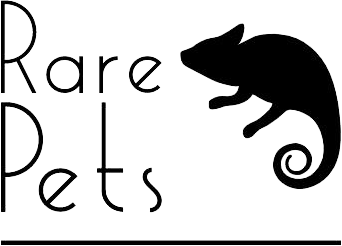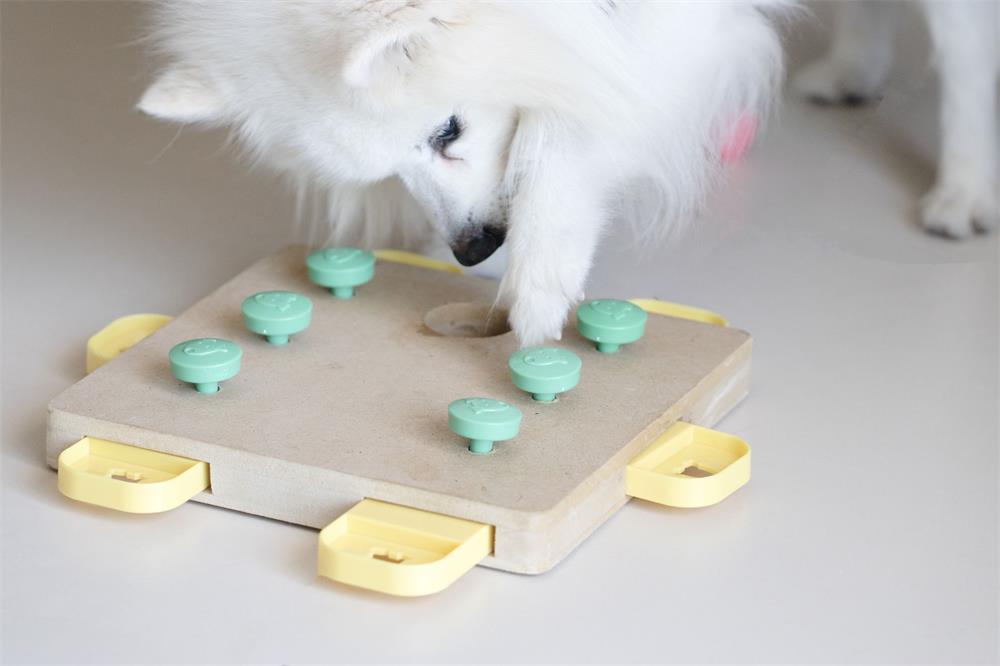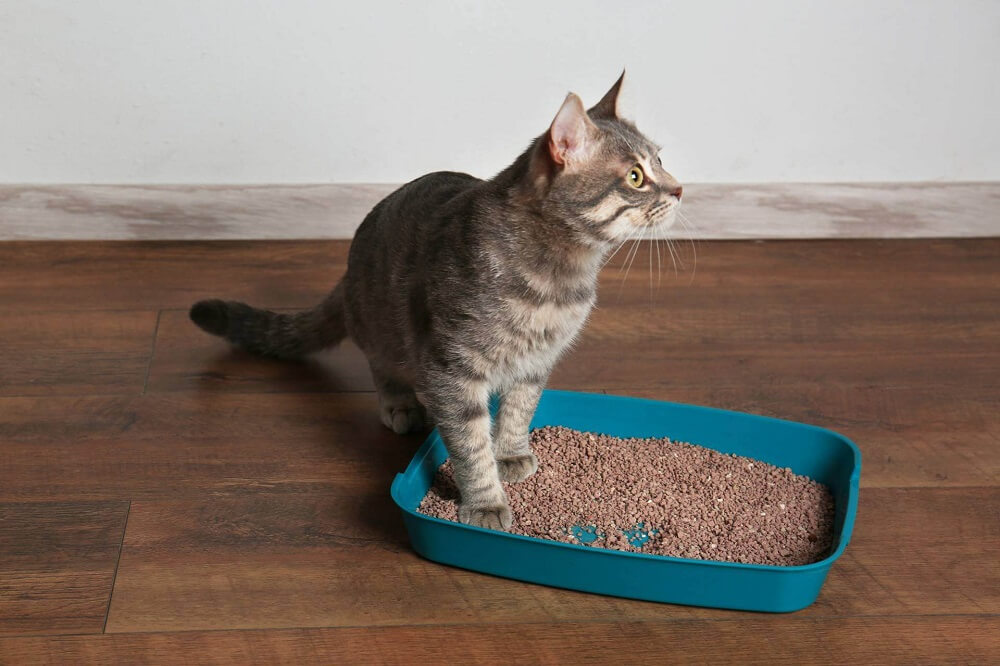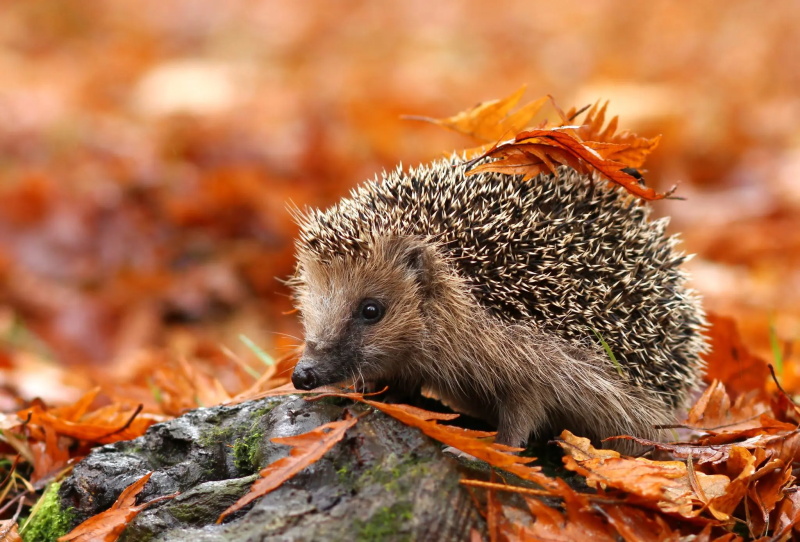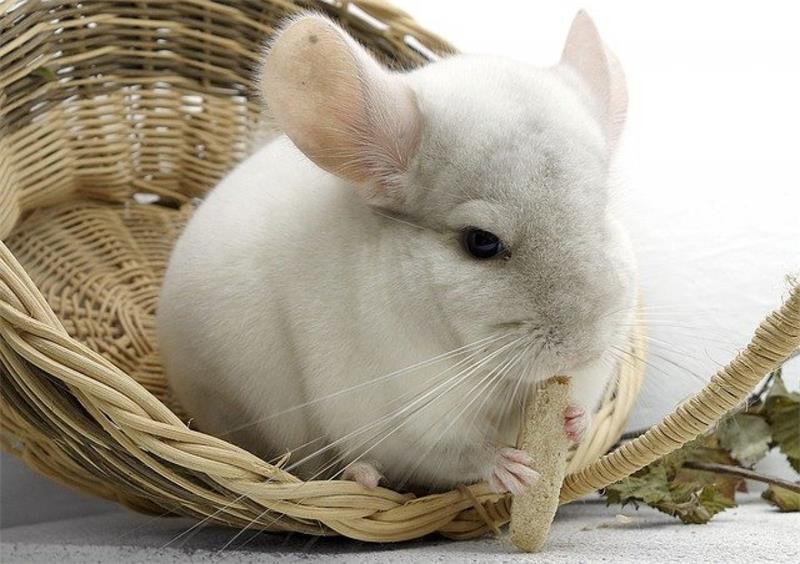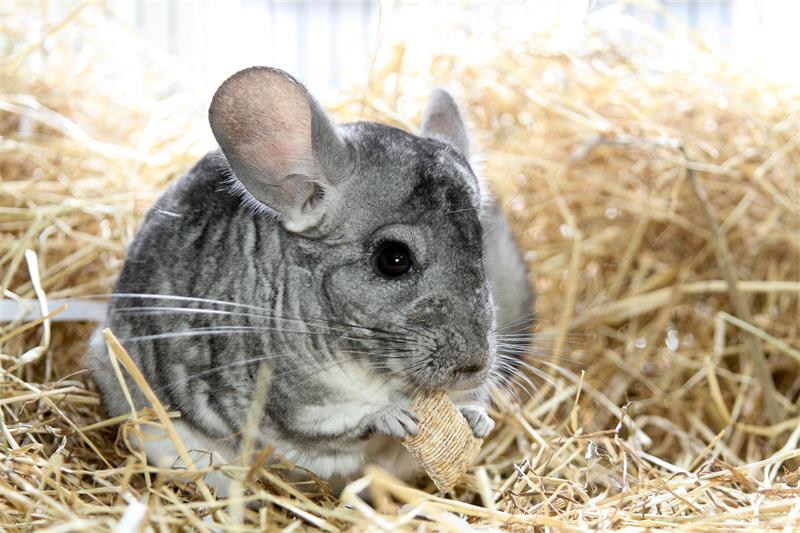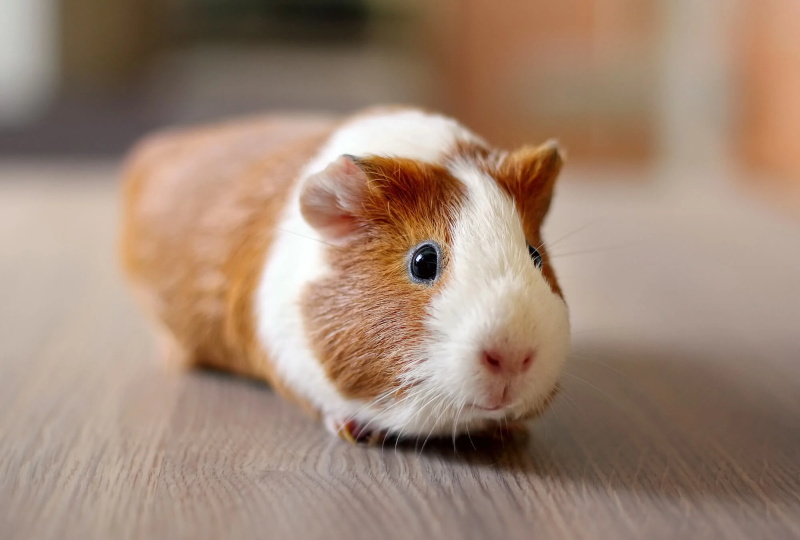
Table of Contents
Guinea pigs are adorable and social animals that can make great pets for people of all ages. However, like any other animal, they can also exhibit some behavioral issues that may cause problems for their owners and themselves. In this article, we will explore some of the most common behavioral issues in guinea pigs, what causes them, and how to deal with them effectively.
Chewing the Bars
One of the most common behaviors that guinea pig owners may notice is their pet chewing on the bars of their cage. This can be annoying and noisy, as well as potentially harmful for the guinea pig’s teeth and gums. There are several possible reasons why guinea pigs chew on the bars, such as:
- Boredom: Guinea pigs need stimulation and enrichment to keep them happy and healthy. If they don’t have enough toys, hideouts, tunnels, or other items to play with and explore, they may resort to chewing on the bars as a way of passing time and relieving stress.
- Hunger: Guinea pigs have a fast metabolism and need constant access to fresh hay, water, and vegetables. If they run out of food or water, they may chew on the bars to signal their hunger or thirst to their owners.
- Attention: Guinea pigs are social animals that crave attention and interaction from their owners and cagemates. If they feel lonely or neglected, they may chew on the bars to get their owner’s attention or to express their frustration.
- Habit: Some guinea pigs may develop a habit of chewing on the bars over time, even if they don’t have any of the above reasons. This can be hard to break, but not impossible.
The best way to deal with this behavior is to address the underlying cause and provide your guinea pig with more stimulation, food, water, attention, or whatever they need. You can also try to discourage them from chewing on the bars by spraying them with water or vinegar (make sure it doesn’t get into their eyes), covering the bars with cardboard or fleece, or providing them with alternative chewing items such as wooden blocks, chew toys, or hay balls.
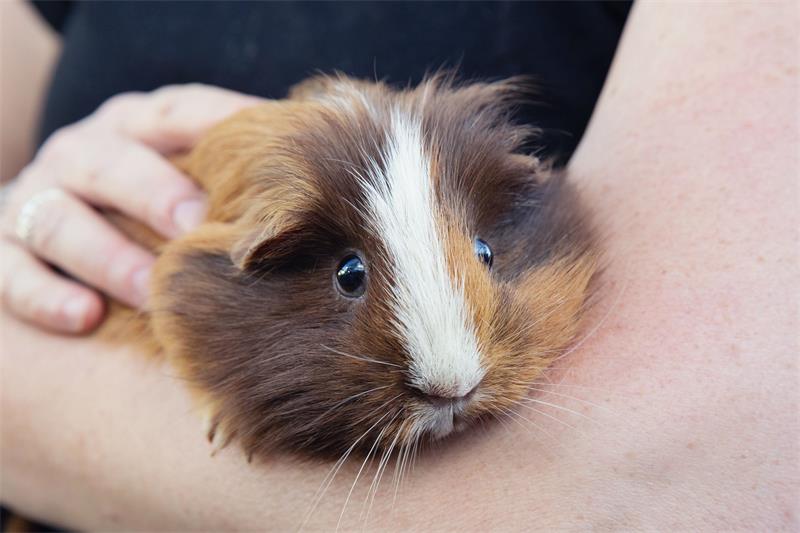
Lack of Movement
Another common behavior that may concern guinea pig owners is their pet’s lack of movement. Some guinea pigs may spend a lot of time lying down, hiding, or sleeping in their cage, without showing much interest in anything else. This can indicate several possible issues, such as:
- Illness: Guinea pigs are prey animals that tend to hide their symptoms of illness until it is too late. If your guinea pig is not moving much, it could be a sign that they are sick or injured and need veterinary attention. Some common signs of illness in guinea pigs include weight loss, loss of appetite, diarrhea, breathing difficulties, discharge from the eyes or nose, hair loss, lumps or wounds on the body, etc. If you notice any of these signs along with lack of movement, take your guinea pig to the vet as soon as possible.
- Stress: Guinea pigs are sensitive animals that can get stressed by various factors such as loud noises, sudden changes in their environment, predators nearby, lack of space or hiding places, bullying by other guinea pigs, etc. Stress can affect their behavior and make them less active and more fearful. To reduce stress in your guinea pig, make sure they have a spacious and comfortable cage with plenty of hiding places and bedding materials. Avoid exposing them to loud noises or other sources of stress. Provide them with a calm and consistent routine and handle them gently and regularly.
- Depression: Guinea pigs are social animals that need companionship from other guinea pigs of the same species and sex. If they are kept alone or separated from their cagemates for too long, they can become depressed and lose interest in everything. Depression can also be caused by losing a cagemate due to death or illness. To prevent depression in your guinea pig, make sure they have a suitable cagemate of the same species and sex. Guinea pigs can bond very strongly with their partners and may grieve for them if they die or are separated. To help them cope with the loss, you can provide them with extra attention and comfort, as well as a new cagemate after a suitable period of time. However, you should not rush into introducing a new guinea pig, as they may not get along well at first. You should follow a proper introduction process that involves keeping them in separate cages at first, then gradually letting them interact in a neutral area, and finally moving them to a clean and spacious cage together. You should also monitor their behavior for any signs of aggression or dominance and intervene if necessary.
- Old age: Guinea pigs can live up to 8 years, but as they get older, they may become less active and more prone to health problems. This is normal and inevitable, but you can still make their golden years comfortable and enjoyable by providing them with proper care and attention. You should check their health more frequently and consult your vet if you notice any changes or issues. You should also adjust their diet and environment according to their needs and preferences. For example, you may need to provide them with softer food, warmer bedding, lower ramps, or more hiding places.
The best way to deal with this behavior is to determine the cause and provide your guinea pig with appropriate medical care, stress relief, companionship, or comfort. You should also respect their need for rest and privacy and avoid disturbing them too much.
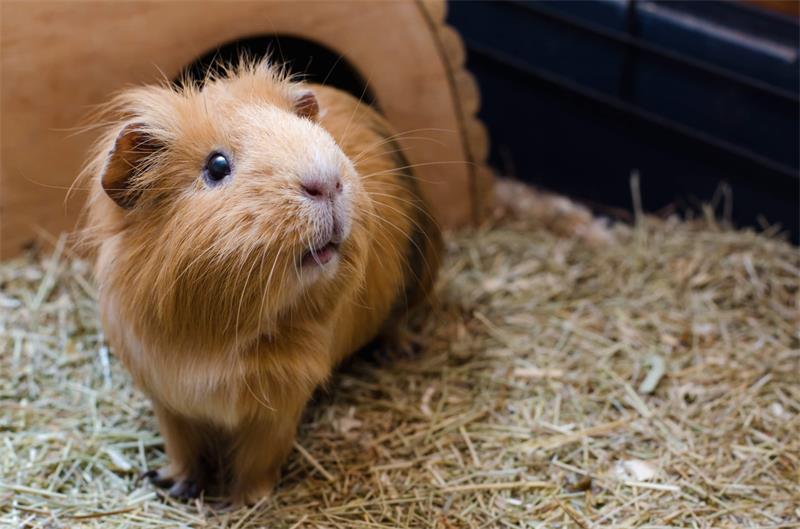
Change in Eating, Drinking and Toilet Habits
Guinea pigs are creatures of habit and they usually have a regular pattern of eating, drinking, and toileting. If you notice any changes in these habits, such as eating or drinking less or more than usual, having diarrhea or constipation, urinating more or less frequently or in different places, etc., it could indicate a behavioral or health issue. Some of the possible causes are:
- Dental problems: Guinea pigs have teeth that grow continuously throughout their lives and need to be worn down by chewing on hay, vegetables, and other hard items. If they don’t have enough access to these items or if their teeth are misaligned or overgrown, they may develop dental problems such as malocclusion, abscesses, infections, etc. These problems can cause pain and difficulty in eating and drinking, leading to weight loss, dehydration, malnutrition, etc. Dental problems are very serious and require immediate veterinary attention.
- Digestive problems: Guinea pigs have a sensitive digestive system that can be easily upset by various factors such as stress, diet changes, parasites, infections, etc. Digestive problems can cause diarrhea or constipation, gas, bloating, loss of appetite, etc. These problems can also lead to dehydration, malnutrition, and other complications. Digestive problems can be prevented by providing your guinea pig with a balanced diet that consists mainly of fresh hay, supplemented with fresh vegetables, fruits, and pellets. You should also avoid giving them any foods that are toxic or unhealthy for them, such as chocolate, dairy products, onion, garlic, etc.
- Urinary problems: Guinea pigs can also suffer from urinary problems such as bladder stones, infections, cystitis, etc. These problems can cause pain and discomfort in urinating, as well as blood in the urine, frequent urination, or urine scalding. Urinary problems can be caused by various factors such as genetics, diet, hydration, stress, etc. To prevent urinary problems, you should provide your guinea pig with plenty of fresh water to drink, avoid feeding them too much calcium-rich foods such as spinach, kale, alfalfa hay, etc., and keep their cage clean and dry.
The best way to deal with this behavior is to consult your vet as soon as you notice any changes in your guinea pig’s eating, drinking or toilet habits. Your vet can diagnose the cause and prescribe the appropriate treatment for your guinea pig. You should also follow your vet’s advice on how to prevent or manage these issues in the future.
Repeated Circling of Their Enclosure or Overgrooming
Some guinea pigs may exhibit behaviors such as repeatedly circling their enclosure or overgrooming themselves or their cagemates. These behaviors can indicate several possible issues, such as:
- Boredom: Guinea pigs need stimulation and enrichment to keep them happy and healthy. If they don’t have enough toys, hideouts, tunnels, or other items to play with and explore, they may resort to circling their enclosure or overgrooming themselves or their cagemates as a way of passing time and relieving stress.
- Anxiety: Guinea pigs are sensitive animals that can get anxious by various factors such as loud noises, sudden changes in their environment, predators nearby, lack of space or hiding places, bullying by other guinea pigs, etc. Anxiety can affect their behavior and make them more restless and obsessive. They may circle their enclosure or overgroom themselves or their cagemates as a way of coping with their anxiety.
- Hormonal imbalance: Guinea pigs can also suffer from hormonal imbalance due to various reasons such as pregnancy, lactation, ovarian cysts, etc. Hormonal imbalance can affect their behavior and make them more irritable and aggressive. They may circle their enclosure or overgroom themselves or their cagemates as a way of asserting their dominance or expressing their frustration.
The best way to deal with this behavior is to address the underlying cause and provide your guinea pig with more stimulation, comfort, or treatment. You can also try to discourage them from circling their enclosure or overgrooming themselves or their cagemates by spraying them with water or vinegar (make sure it doesn’t get into their eyes), distracting them with toys or treats, or separating them if they are fighting. You should also consult your vet if you suspect any hormonal imbalance or other health issues.
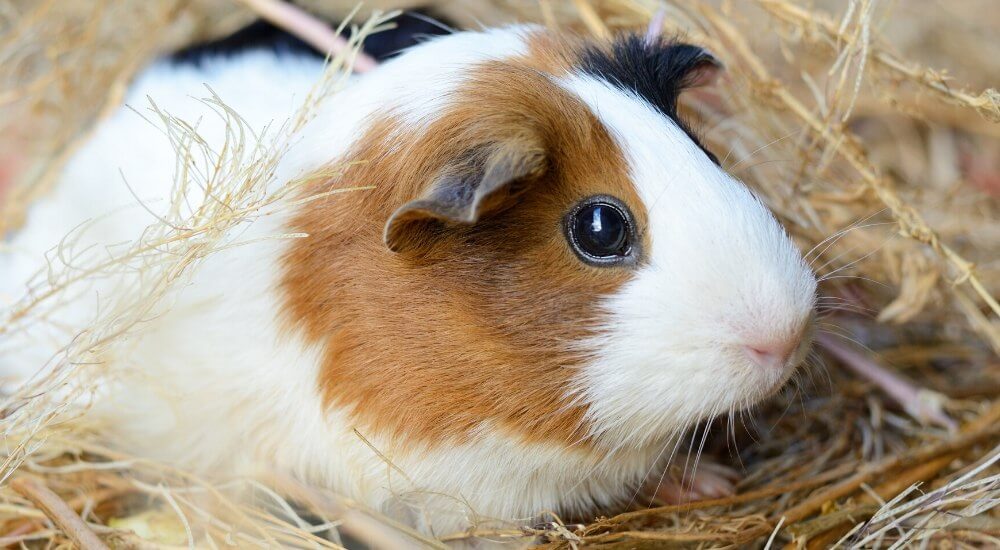
Aggression Towards Other Guinea Pigs or Humans
Some guinea pigs may exhibit aggression towards other guinea pigs or humans by biting, scratching, chasing, or fighting. This can be dangerous and stressful for both the guinea pigs and their owners. Some of the possible causes of aggression are:
- Territoriality: Guinea pigs are territorial animals that may defend their space and resources from intruders. This can happen when a new guinea pig is introduced to an existing group, when the cage is too small or overcrowded, when there is not enough food, water, or hiding places for everyone, etc. Territorial aggression can also occur between males who are competing for females or dominance.
- Fear: Guinea pigs are prey animals that may react aggressively when they feel threatened or scared. This can happen when they are handled roughly or improperly, when they are exposed to loud noises or unfamiliar objects, when they are chased by other animals or children, etc. Fear aggression can also occur between guinea pigs who are not familiar or comfortable with each other.
- Pain: Guinea pigs may also lash out when they are in pain or discomfort due to illness or injury. This can happen when they have dental problems, digestive problems, urinary problems, skin problems, etc. Pain aggression can also occur between guinea pigs who accidentally hurt each other while grooming or playing.
The best way to deal with this behavior is to address the underlying cause and provide your guinea pig with more space, security, or medical care. You can also try to discourage them from being aggressive by spraying them with water or vinegar (make sure it doesn’t get into their eyes), separating them if they are fighting, or neutering them if they are males. You should also consult your vet if you suspect any pain or other health issues.
Conclusion
Guinea pigs are wonderful pets that can bring joy and companionship to their owners. However, they also have specific needs and preferences that must be met to ensure their well-being and happiness. By understanding and addressing some of the common behavioral issues in guinea pigs, you can help your furry friends live a long and fulfilling life. Remember to always provide your guinea pigs with a suitable cage, a balanced diet, fresh water, toys, exercise, socialization, and veterinary care. If you have any questions or concerns about your guinea pig’s behavior or health, don’t hesitate to contact your vet for advice and assistance.
